Over the past decade, wearable tech has exploded in popularity. They offer an easy way to monitor your health and track workouts, most commonly from your wrist.
But there are two distinct categories of device here. A smartwatch is as much an extension of your smartphone as it is a fitness accessory, allowing you to access a range of general-purpose apps – often including third-party options.
Do you really need all that extra functionality, which is often relatively expensive? Or would you be just as happy with something more simple?
If your answer to the latter is ‘yes’, a fitness tracker is the right choice for you. As well as price, they’re often smaller and offer better battery life than smartwatches. And some still have smartwatch-style features.
The fitness tracker is synonymous with Fitbit, but the Google-owned brand locks some key features behind a Fitbit Premium subscription. So it’s definitely worth considering alternatives, with devices from Xiaomi, Withings and Garmin also included in this list.
Our experts have rigorously tested all the devices you find here and we’ve presented the best 10 options. Following this, you’ll find detailed fitness tracker buying advice, to help you decide what’s best for you. You might also consider a budget smartwatch or smart ring.
Best fitness trackers 2024
1. Xiaomi Smart Band 9 – Best Overall
Pros
- Premium design & build
- Plenty of fitness features
- Bright AMOLED display
Cons
- Promised improved heart rate improvements
- No GPS
Price When Reviewed:
$57.99 (unofficial)
If you want a fitness tracker that’s cheap but doesn’t look or feel cheap, has a great screen and has software that largely runs very slick, then the Xiaomi Smart Band 9 is worth picking up.
If you own a Smart Band 8, then it’s the battery gains and the boost in screen brightness that feels like the big wins here and less so the promised heart rate improvements.
I think if you want better, more reliable day-to-day heart rate tracking, you’re going to have to pay more for something like the Fitbit Inspire 3 to get it. If you can live with a tracker that does those basics well outside of that and offers a really likeable design, then this is the best.
Read our full
Xiaomi Smart Band 9 review
2. Fitbit Charge 6 – Best Fitbit
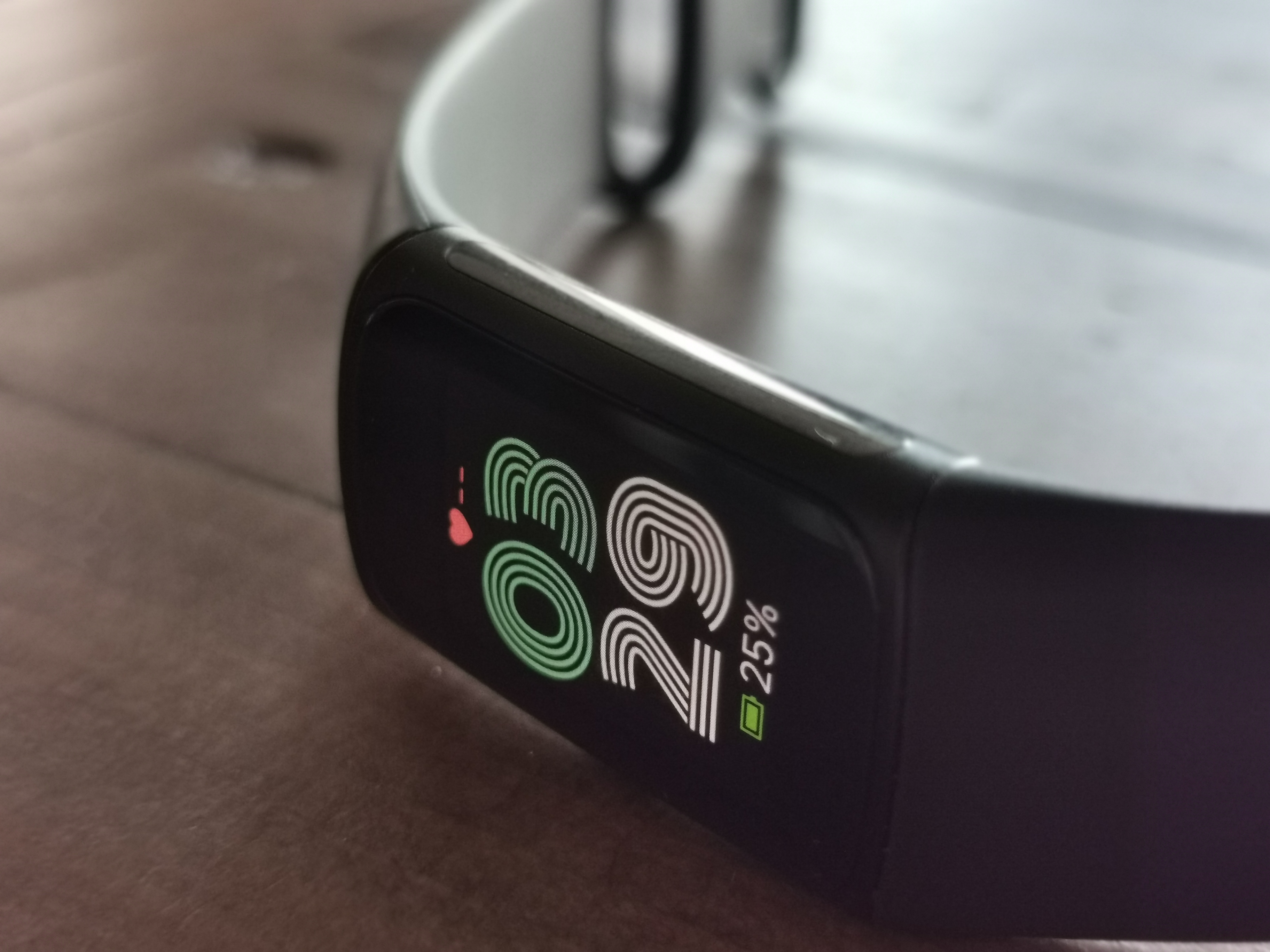
Pros
- Google Maps and Google Pay access
- Great fitness features
- Impressive colour display
- Easy navigation
Cons
- Some Fitbit Premium exclusives
- No altimeter
- Hit-and-miss GPS
Price When Reviewed:
$159.95
The Charge 6 takes what made the Charge 5 so good and makes it even better.
Fitbit’s main addition this time around is access to Google Maps, Google Pay and YouTube Music (no other music streaming services available), making it closer to a smartwatch than ever before.
But its primary focus remains fitness, with support for more than 40 workouts (some automatically) and your sleep. Data collected is extensive too, with the likes of steps, distance, calories burned, hourly activity and heart rate all monitored.
The colour display is very impressive, and the device is easy to navigate using a combination or touch and the new side button. It’s also great to see built-in GPS, though it is unreliable at times.
There’s still no altimeter, so you can’t measure floors climbed, while many advanced features are reserved for Fitbit Premium subscribers. However, even if you don’t pay, the Charge 6 still delivers a very good all-round fitness tracking experience.
Read our full
Fitbit Charge 6 review
3. Withings ScanWatch Light – Best Hybrid
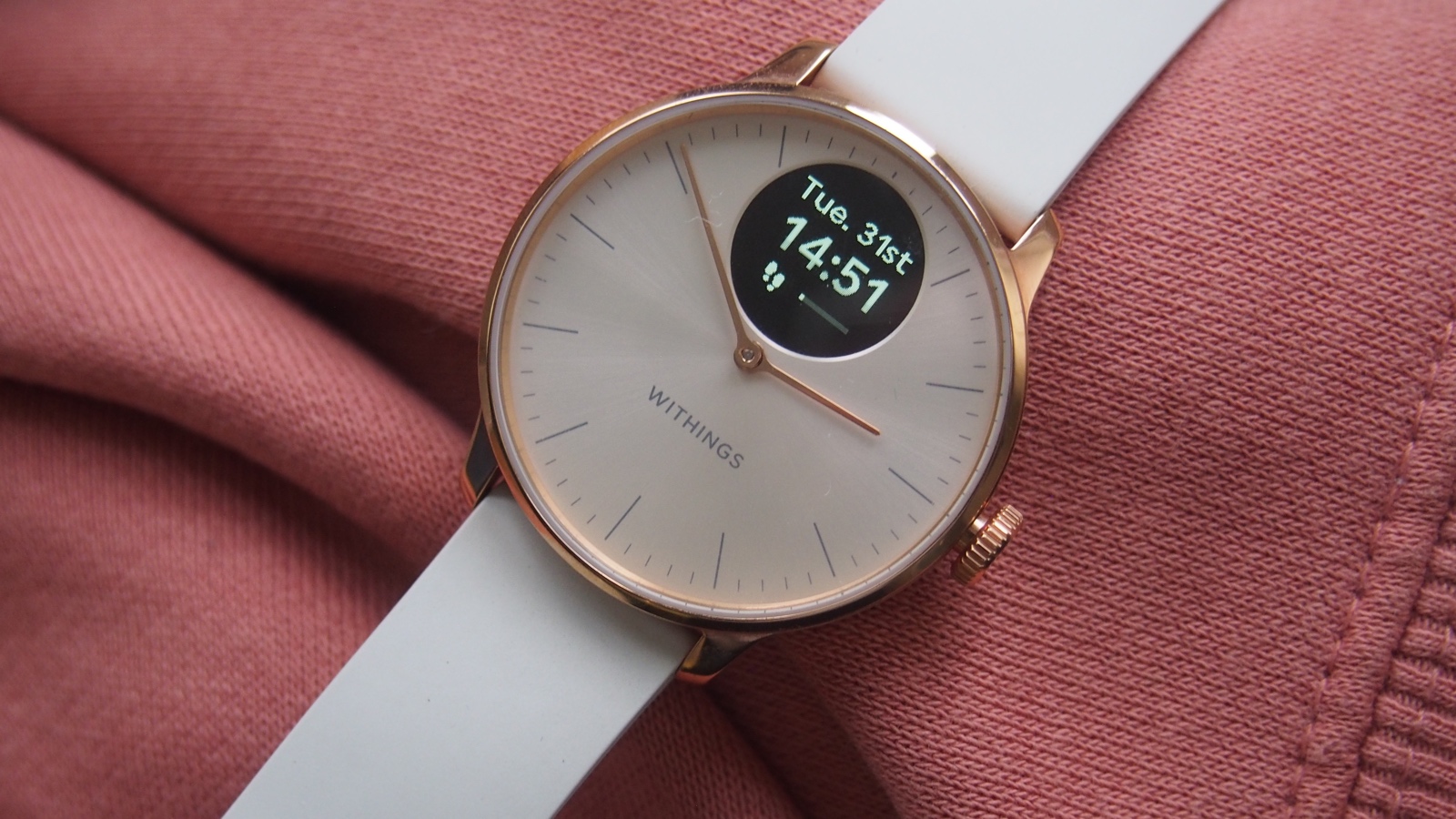
Pros
- Stunning design
- Clever display
- Impressive battery life
- Lightweight yet durable
Cons
- Hit-and-miss step and heart rate tracking
- Not good for notifications
- No built-in GPS
Price When Reviewed:
$249.95
Withings’ ScanWatch 2 (featured below) might be the most complete hybrid watch you can buy, but the Light offers everything most people are looking for at a more affordable price.
That includes a gorgeous premium design, which is relatively lightweight but still impressively durable. Within it you’ll find a tiny 0.63-inch monochrome display, which is easy to control using the rotating physical crown.
There’s enough room to display all key information except phone notifications, which often get annoyingly cut off. The ScanWatch Light can track over 40 workouts (some automatically) with though data is generally limited to heart rate (including zones), steps, distance and pace.
But sleep tracking is good, and battery life is truly excellent. You’ll struggle to get the 30 days Withings claims, but around 1-2 weeks is well within reach.
If you can live without 24/7 temperature tracking, ECGs, irregular heart rhythm notifications and blood oxygen monitoring, the ScanWatch Light is the Withings watch to get.
Read our full
Withings ScanWatch Light review
4. Xiaomi Smart Band 8 – Best Value
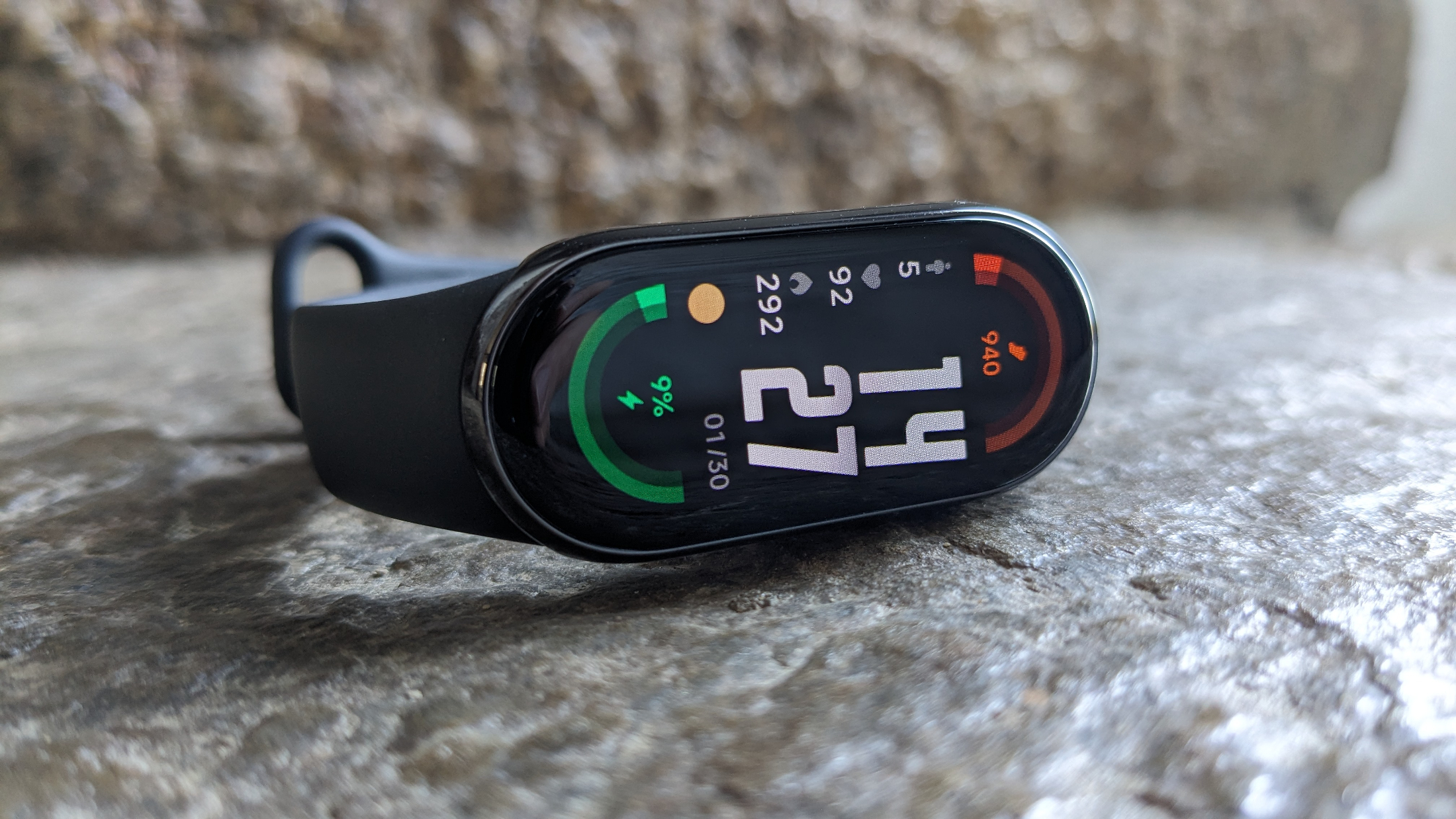
Pros
- Extensive health tracking
- Easy to customise
- Small and discreet
- Comfortable to wear
Cons
- Hit-and-miss accuracy
- No NFC
- No GPS
Price When Reviewed:
$49.99
If you’re making your first steps into the world of fitness trackers (and have an Android device), the Smart Band 8 is the device to go for. It packs an incredible amount of features into a device costing just £39.99/€49.99.
There’s support for over 150 different fitness modes, plus built-in sensors to track heart rate, blood oxygen and steps. You can also use the Band 8 to measure stress or see how well you’ve slept, with an incredible battery that lasts around two weeks on a single charge.
While the data isn’t always totally accurate, it’s certainly not lacking in the Mi Fitness companion app. And the 1.62-inch AMOLED touchscreen you use to interact with the device looks great.
You don’t have to wear it on your wrist, either. A wide range of bands allow you to use it as a necklace or even attached to your shoe if you’d prefer.
There are no premium features such as NFC and GPS, though you do get 5ATM water resistance. And considering how affordable the Band 8 is, it’s a very good all-rounder.
Read our full
Xiaomi Smart Band 8 review
5. Fitbit Inspire 3 – Best Cheap Fitbit
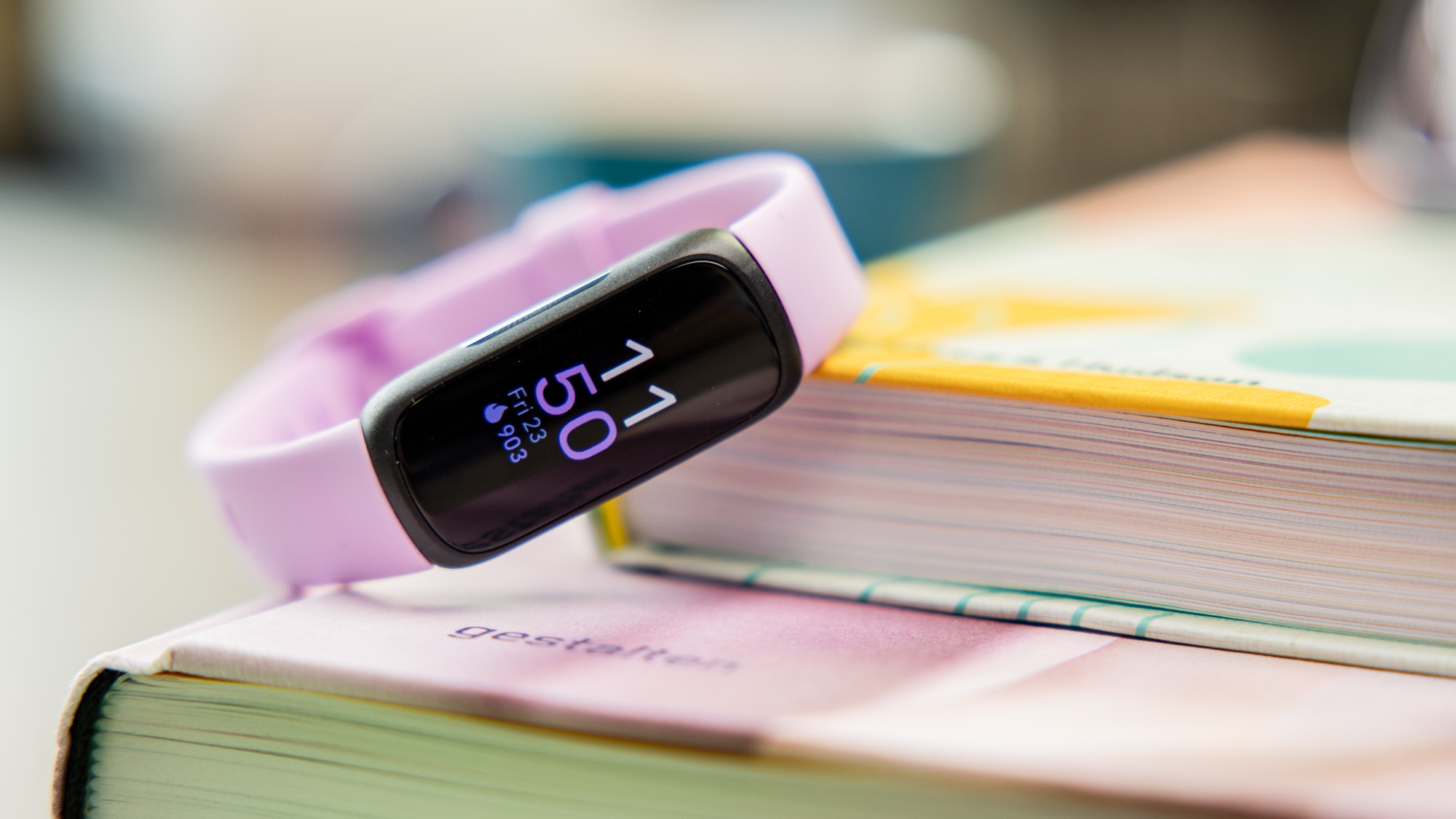
Pros
- Always-on colour screen
- Stylish & comfortable
- Comprehensive tracking
- Good battery life & charging
Cons
- Tiny screen
- Premium needed for some features
- Short charging wire
- No GPS
Price When Reviewed:
$99.95
The Inspire 3 is the cheapest model in the current Fitbit line-up, making it an excellent entry point to tracking.
It’s still more expensive than rivals like the Xiaomi Mi Band 7, but Fitbit’s software experience and ecosystem are both excellent, so for some it may be worth paying a little extra – though paying more for a smaller display does sting a little.
It helps that you get up to 10 days of battery life (though a little less if you use the new always-on display feature), 24/7 heart rate monitoring now bolstered by SpO2 data, and sleep tracking. Just bear in mind that there’s no built-in GPS support, and that, as with all Fitbits, you’ll need to subscribe to the paid Fitbit Premium plan to get every bit of data out of it.
6. Amazfit Band 7 – Great Affordable Option
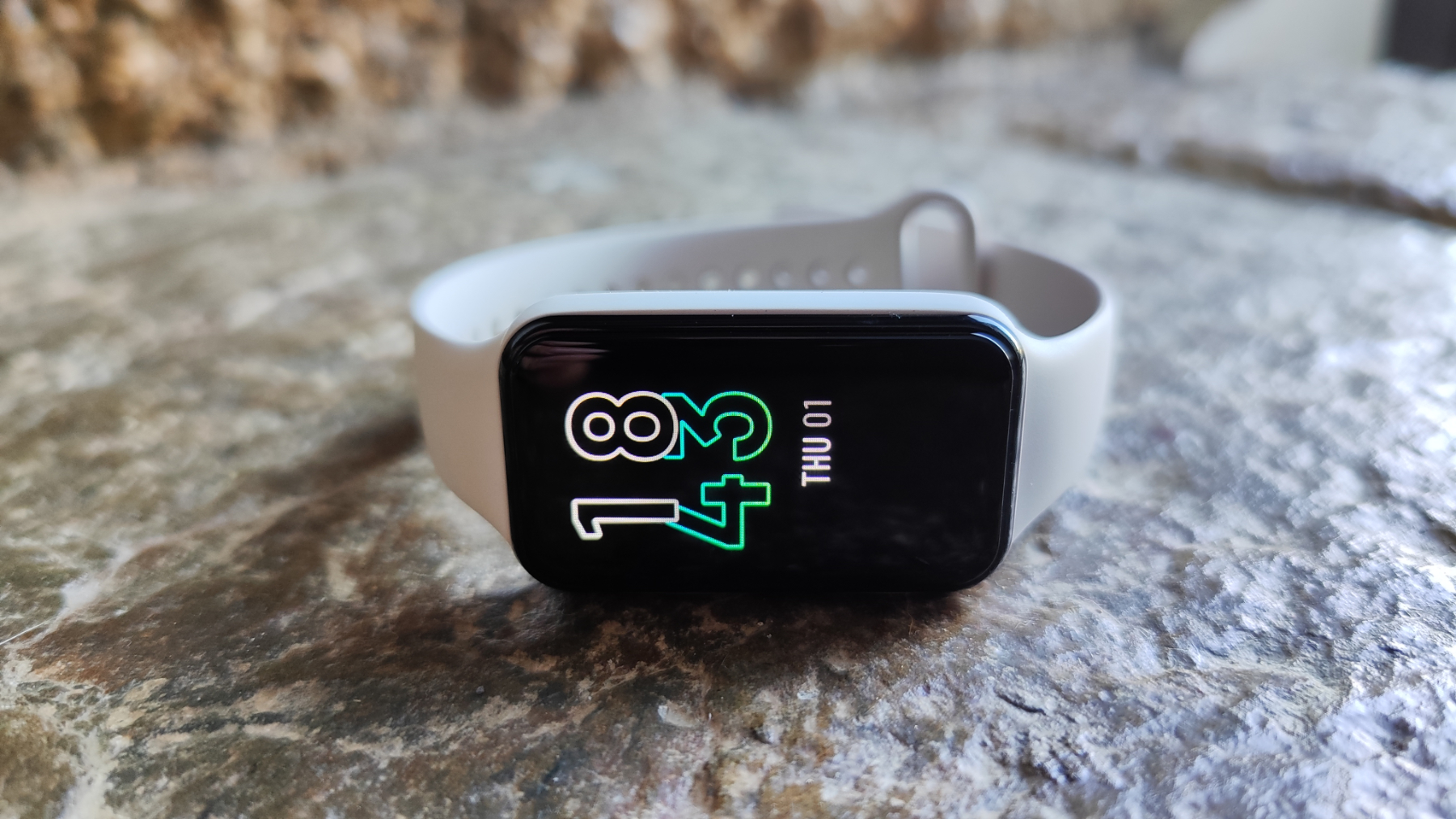
Pros
- Good selection of features
- 5ATM water resistance
- 120 sports tracking modes
- Heart, SpO2, stress and sleep tracking
Cons
- No auto-brightness
- No NFC
- Software needs some polish
Price When Reviewed:
$49.99
With good looks, sturdy construction, a big display, lengthy battery life, and solid exercise tracking, the Amazfit Band 7 makes a great first impression.
The software could do with some polish and some kind of home button would make life easier, but for the price it is more than good enough.
If you are looking for a good value smart band today, the Amazfit Band 7 should be near the top of your list.
Read our full
Amazfit Band 7 review
7. Xiaomi Smart Band 8 Pro – Best Big Screen
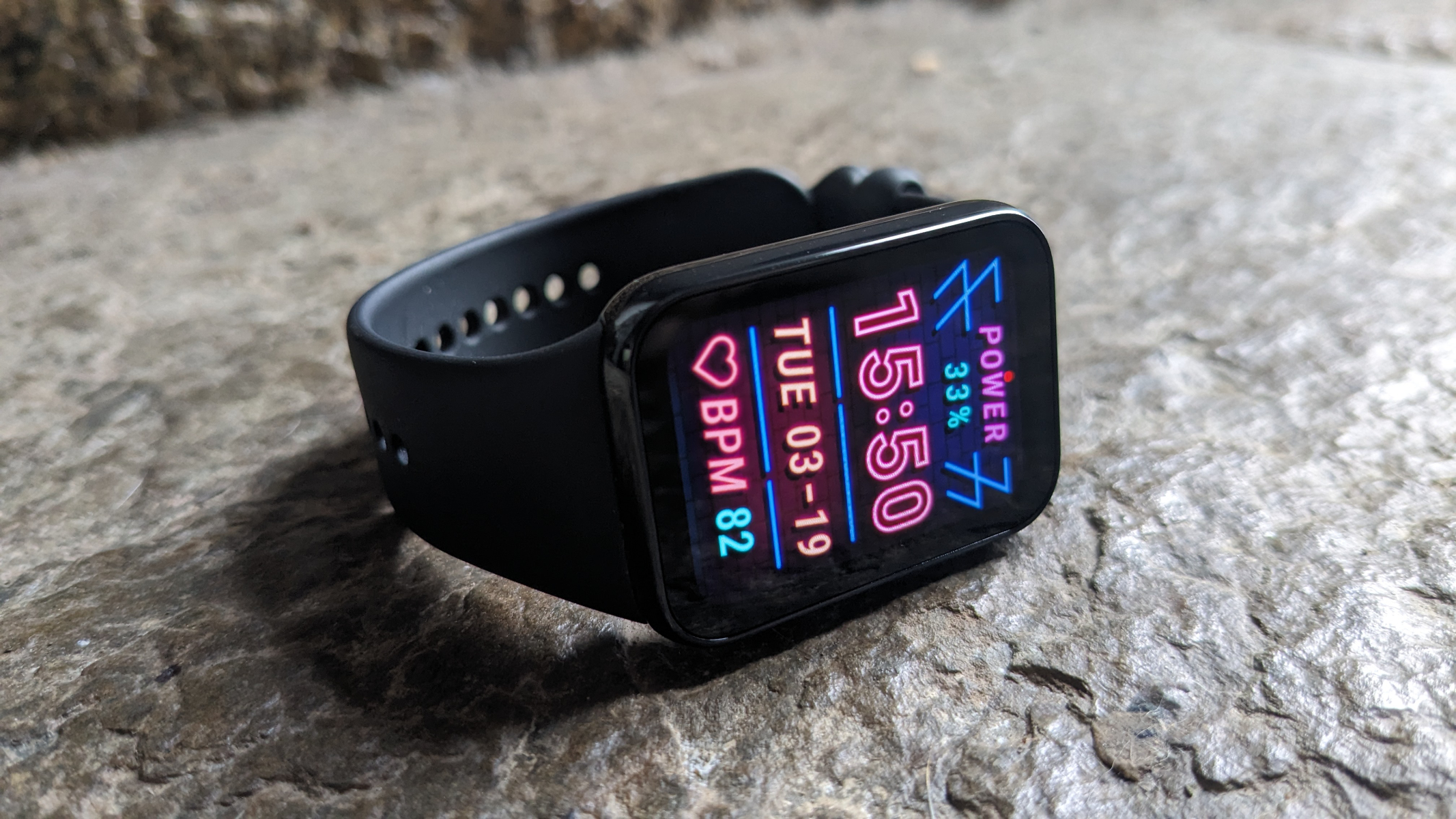
Pros
- Great display
- Plenty of tracking options
- Inexpensive
- Good battery life
Cons
- No NFC
- Can’t reply to messages
- Settings change with watch faces
Picking up an affordable fitness tracker these days can be complicated, as there are so many decent options available.
The main selling point for the Smart Band 9 Pro is the large screen, which is a lovely panel that’s easy to read. Fitness trackers don’t have to have those tall thin screens.
Tracking is solid, but not as accurate as you’d find on more expensive models.
If you’re happy with general guidance rather than precise readings, then this will easily be enough for people that just want an easy way to monitor their health, control their media and read messages without needing to pull out their phone, all for a cost that won’t break the bank.
Read our full
Xiaomi Smart Band 8 Pro review
8. Garmin Lily 2 – Most Stylish
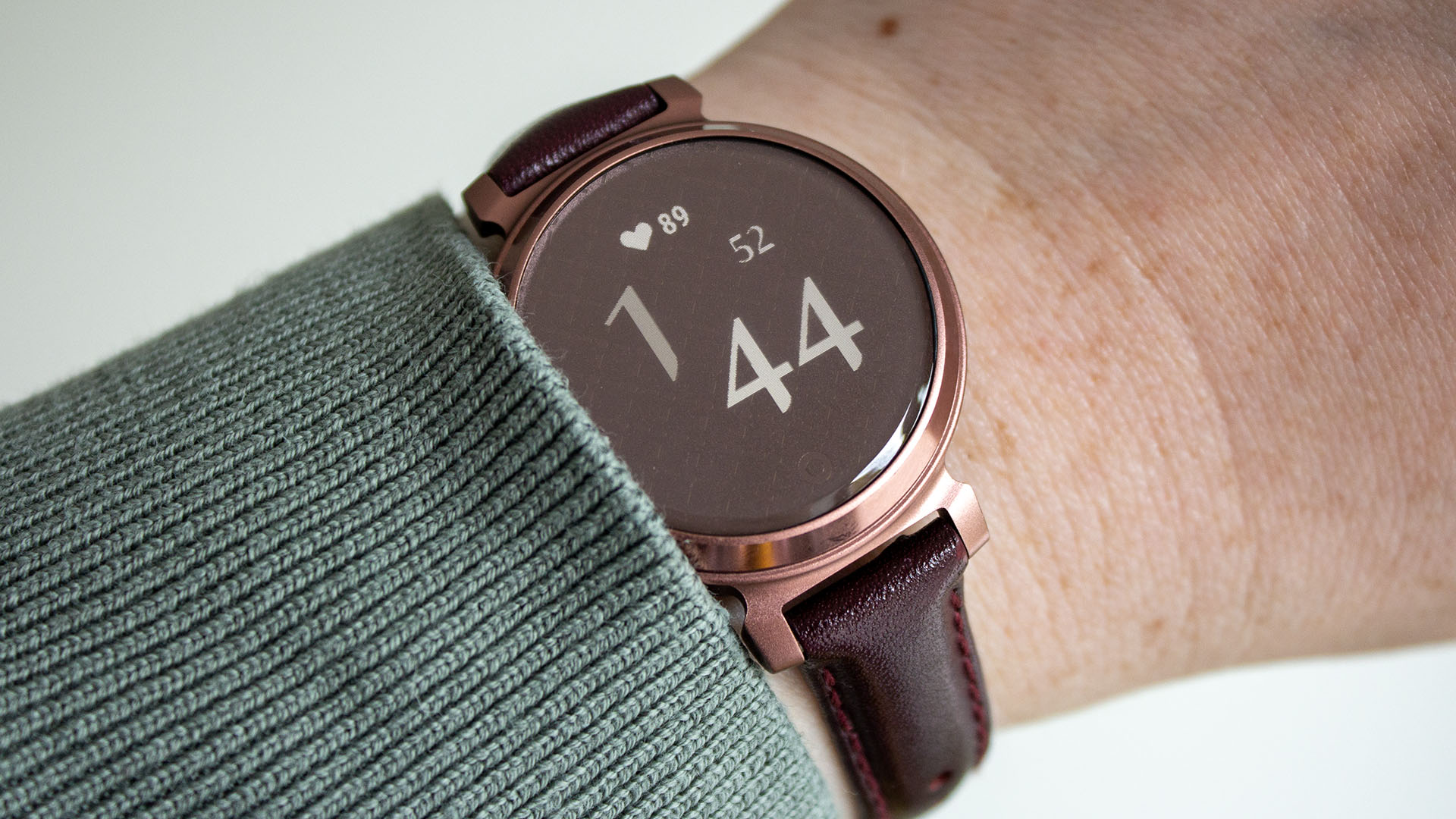
Pros
- Lightweight and elegant
- Range of features
- Decent battery life
- Body Battery and stress tracking are excellent
Cons
- No GPS
- Sleep tracking could be better
- Women’s health needs improvement
Price When Reviewed:
From $249.99 | Model reviewed $299.99
The Lily 2 is one of the most stylish fitness trackers – especially if you want to wear one with smarter clothing.
Activity tracking is accurate and the Body Battery and stress tracking features are a delight to use, giving a good insight into overall wellness.
Sleep tracking could be better, as could women’s health tracking, and it doesn’t cater to hardcore athletes with a lack of built-in GPS and some other features like recovery time, both of which are offered by the similar-priced Vivoactive range.
The Garmin Lily 2 excels for casual exercisers seeking a discreet and comfortable companion for their everyday wellness journey, however.
For those with larger wrists or a strong focus on training metrics, the Vivoactive will be a better fit, but if you prioritise comfort, style, and reliable fitness tracking in a compact package, the Garmin Lily 2 is a great option to consider.
Read our full
Garmin Lily 2 review
9. Honor Band 9 – Big Screen Under £50
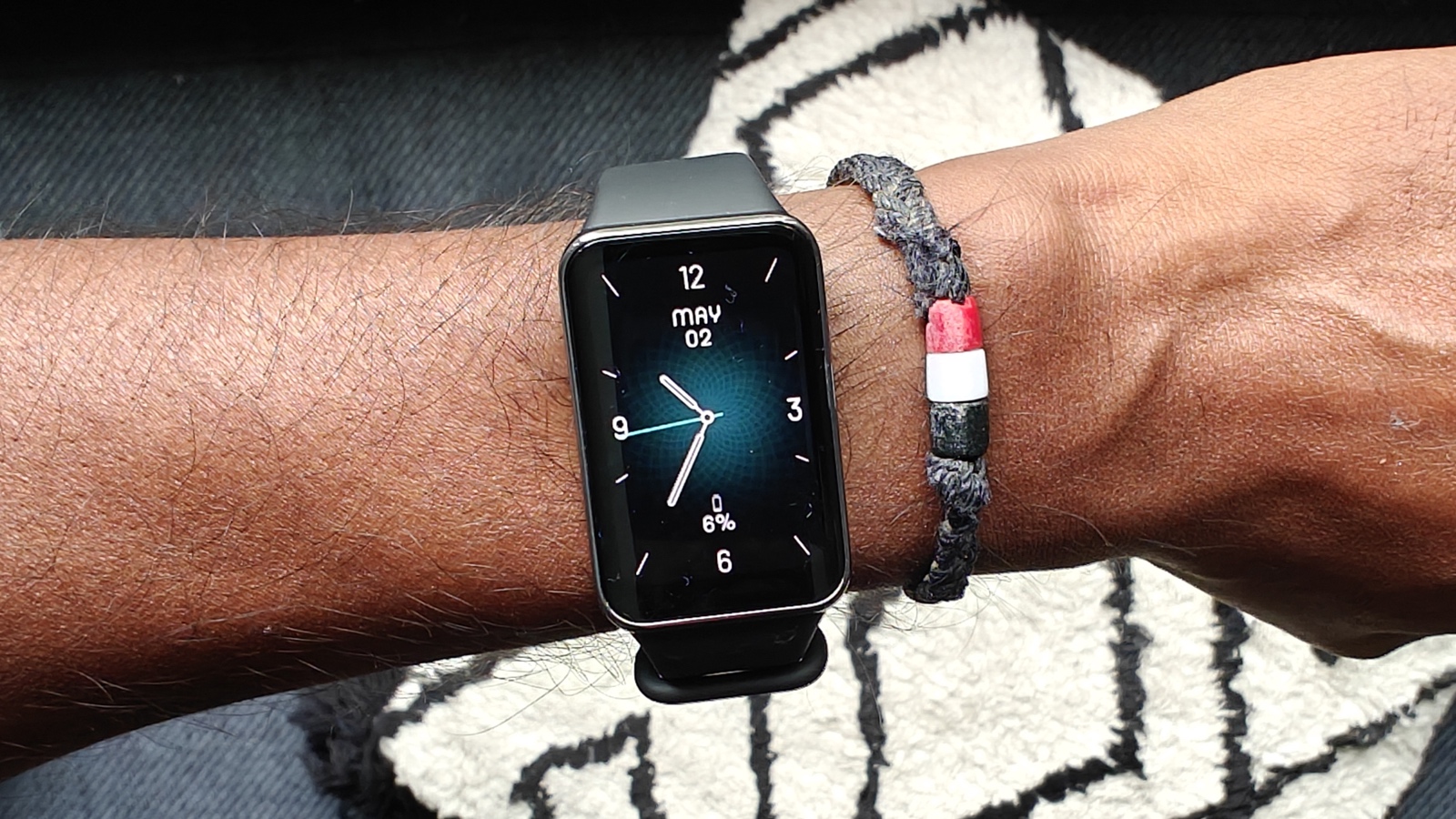
Pros
- Bigger and better display
- Easy to use software
- Nice mix of fitness features
- Solid battery life
Cons
- No physical button
- Heart rate accuracy still not great
Price When Reviewed:
Unavailable in the US
The Honor Band 9 essentially takes the Band 7 and puts a bigger screen on it making it the main reason to buy it over other fitness trackers.
There don’t seem to be any real discernible differences in terms of what you’re getting on the software front and as a result, the performance feels nearly identical.
Having that bigger display does make some features, particularly on the smartwatch front, feel nicer to use than previously. As far as pushing things forward in terms of what a budget fitness tracker can deliver, that’s simply not the case here.
It’s not groundbreaking but a solid choice if you want a cheap fitness tracker with a big screen.
Read our full
Honor Band 9 review
10. Fitbit Ace 3 – Best For Kids
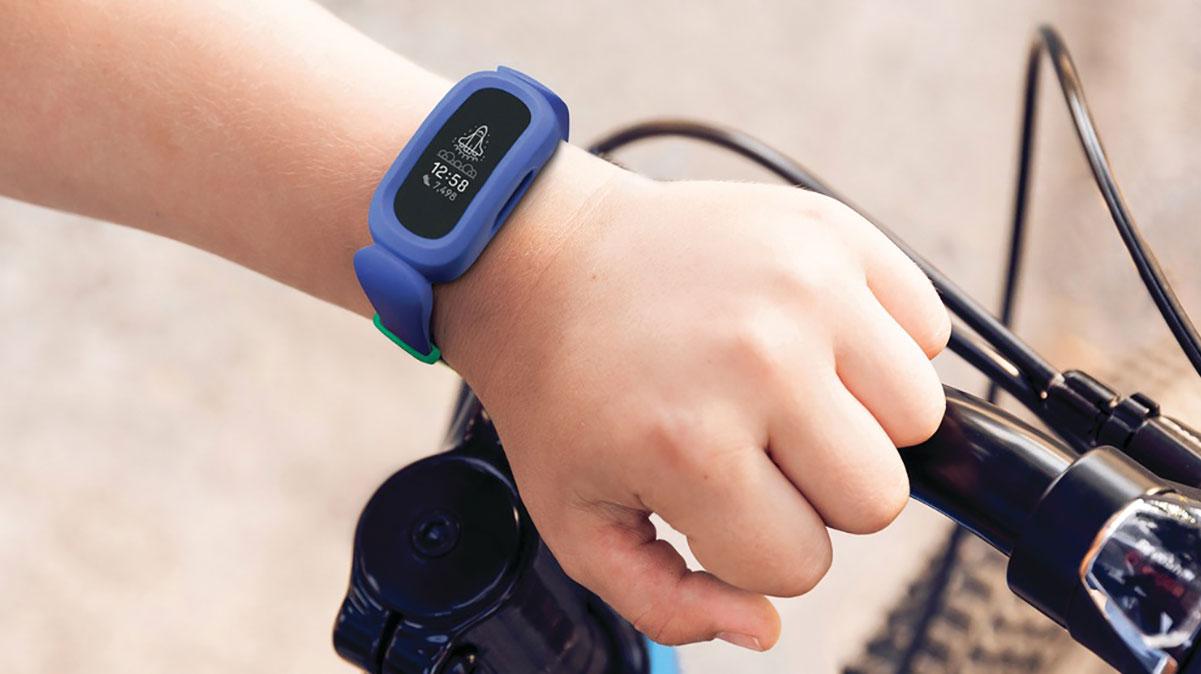
Pros
- In-app Parent and Kid Views
- Hardy, colourful design
- Family challenges
Cons
- Underpowered compared to adult Fitbits
- May not appeal to every kid
Price When Reviewed:
$79.95
The Fitbit Ace 3 is built to suit childrens’ rough-and-tumble lifestyle, providing both kids and parents with simple but insightful activity and sleep tracking data.
The Ace 3 serves as a way to motivate kids to get more active, but in a roundabout way, could also incentivise the whole family to get fitter together (provided everyone involved has a Fitbit of their own to wear).
Older kids might want to look for a tracker with a little more oomph, however, as the Ace 3 offers a cut-down range of fitness and notification features compared to Fitbit’s ‘adult’ trackers. It counts steps, logs Active Minutes, and monitors basic sleep patterns, but lacks heart-rate tracking.
Read our full
Fitbit Ace 3 review
What is a fitness tracker?
Fitness trackers help you measure and log a range of activities each day; from a simple step count to weights sessions, swimming and more. Advanced models include sleep tracking, stress detection, and can even help monitor specific health problems.
Some people will want something that counts steps and doesn’t require frequent charging, while others might be in the market for a new marathon companion.
Do you want to be able to log your routes using integrated GPS or is tethered GPS (pulling location data from your phone in real time) enough? Do you need constant heart rate monitoring? Does your tracker need to be water-resistant? Is integration with other fitness services (such as Strava) important? These are all things to consider before buying.
What’s the difference between fitness trackers and smartwatches?
There’s no strict line here. But, broadly speaking, we define a smartwatch as a more advanced wearable with additional apps and functionality.
You should expect a smartwatch to allow you to install and run apps – including some of the ones you’d find on your phone – as well as check notifications, reply to messages, and perhaps even take calls. Some smartwatches even support eSIM for their own independent data connection.
A fitness tracker is usually more simple, focusing on core health and fitness features. They tend to be smaller, cheaper and with better battery life. You may be able to receive phone notifications to a fitness tracker, but it’s not guaranteed.
Hybrid watches from companies such as Withings strike a balance between the two, but are still relatively expensive.
Should I just buy a Fitbit?
Fitbit dominates the conversation and while the company’s wares are undoubtedly competent, there are lots of other trackers out there that excel in areas your average Fitbit doesn’t.
More importantly, many of Fitbit’s rivals deliver similar specs at much lower prices – so you’ll be paying a bit of a premium for the Fitbit brand and software if you want to go for it. That said, Fitbits are reliable, have great compatibility with other services, and if you’re used to their software and experience then you can skip the learning curve of new hardware.
Read the full article here











